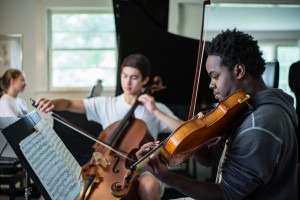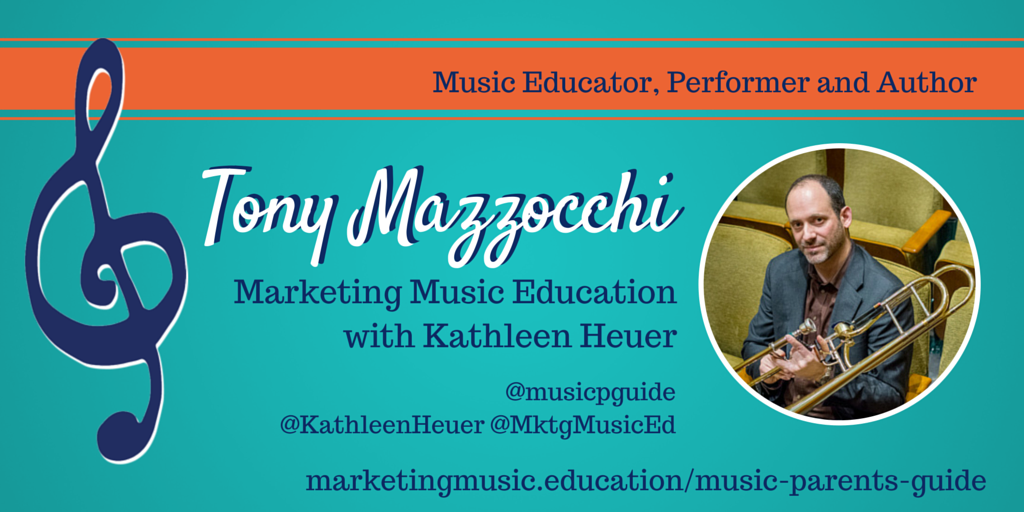 The Superintendent of Atlanta Public Schools recently declared that APS will have 18 fewer band and orchestra teaching positions when students return to school in August. After quite a bit of outcry, Dr. Carstarphen explained her rationale on her blog. The following letter is an extended version of a comment I left on her blog (which has yet to be approved for public view).
The Superintendent of Atlanta Public Schools recently declared that APS will have 18 fewer band and orchestra teaching positions when students return to school in August. After quite a bit of outcry, Dr. Carstarphen explained her rationale on her blog. The following letter is an extended version of a comment I left on her blog (which has yet to be approved for public view).
Dear Dr. Carstarphen,
I appreciate you addressing recent rumors stating that Atlanta Public Schools would be eliminating all music programs next school year. While it is relieving to hear that this will not be happening, it is still disturbing to read that you will be viciously cutting your music programs, in turn altering the course of thousands of children’s lives each year for the foreseeable future of your school system.
While it is understandable that you have the all-too-common fiscal pressures mounting in your schools, I believe that your cuts are short sighted and certainly not in the best of interest of children. Even though you believe these cuts are of teachers and not programming, if you execute them it will be the beginning of the end of instrumental music in your public schools whether you realize it or not.
Here are 4 reasons why your elementary school cuts are not in the best interests of the families you serve:
Elementary instrumental music cuts are devastating to the system unless you make up for them elsewhere. When you dispose of instrumental music in elementary school, you are forced to start students from scratch on instruments in middle school if you have any chance of saving the program as a whole. In order to effectively accomplish this, more periods need to be carved out during the middle school day, and more staffing is necessary to accommodate all of the students who will be beginning instrument instruction. This scheduling shift must be well thought out and planned for, with buy-in from all middle school administrators and teachers. In effect, you are moving the staffing lines from one school to another and therefore not saving any money if you do it correctly. If you do not make any of these necessary changes after your elementary school cuts, your instrumental music programs will disappear in 3 years, guaranteed.
When discussing “individual needs of students”, we must think outside of the “test prep box”. You have chosen to give your elementary principals the power to decide what is best for their students, as if some children need art and music more than others. But what you really mean is that you want to give principals latitude to create more opportunities for test prep at the expense of the arts — a basic human need — if they feel the need to do so. Let’s be clear: your students do not have different DNA based on the school they attend — instead, you have different school cultures based on the values of each school principal. If a music program is anemic in one of your schools, it is most likely because it has not been supported and valued enough from the principal all along, not because students do not inherently value it at a particular location. By giving your staff the choice to cut their program, you are empowering them to follow through with their misguided ideology (or lack of understanding) regarding music education that has existed in their value system already. Instead, consider training your principals in and through the arts (as you have been trained) in order for them to learn to appreciate its role in public education.
Hold your teachers accountable and support them — don’t just cut. It is quite possible that some of your less successful programs are due to ineffective teaching. It happens in every system. However, math and English programs must exist even if there is a bad teacher in the classroom — students can’t quit math and you can’t simply cut the program. Your job is to support and hold those teachers accountable through every means at your disposal. But with music classes, an ineffective teacher can mean the end of a program forever since students are allowed to drop the class. The problem is that when a music program dies, it never, ever comes back. I would urge you to find a musically trained administrator to effectively evaluate your ineffective music teachers and take the correct steps toward accountability and growth in pedagogy before allowing a program to die.
If you want your students to be creative, model that behavior. As you mention on your blog, your elementary principals have different goals for their schools. Although that is fair (to a point), there is a huge need for balance in every school’s curricula, especially in the same district (access & equity, anyone?). While it is your prerogative to give your principals some choice as to how their schools run, it is ultimately up to you to decide what all students need in their curricula. Instrumental music programs cannot be options which can, in hard times, be dispensed with. Students engaged in creative thinking and doing is fundamental to all curricula along with other disciplines — and general music is not enough. If the aim of the Atlanta Public Schools is to give its students a sense of excellence and quality in human achievement, then clearly instrumental music should have a central part to play in this.
I am glad to hear you are an oboe player, but you are not, as you describe yourself, an “avid lover and supporter of the arts” as evidenced by your recent actions. All students have the ability and capacity to love and be proficient at a musical instrument, so it is your responsibility to create the proper environment for that potential to be realized. Regardless of any lip service you give to the arts, your budget reflects your educational values at the end of the day. Although you state “Music and the Arts Remain at APS”, you have not ensured that they will remain that way for much longer. I ask that you reflect on the success you have experienced personally and professionally — much of which can be attributed to your music education, believe it or not — and don’t deny generations of future APS students the chance to fulfill their human potential through arts instruction the way you did.
Sincerely,
A Fellow Educator








See Daniel Barenboim’s recent comments on the importance of music education (it’s in the london Review of Books, I can’t copy the link).